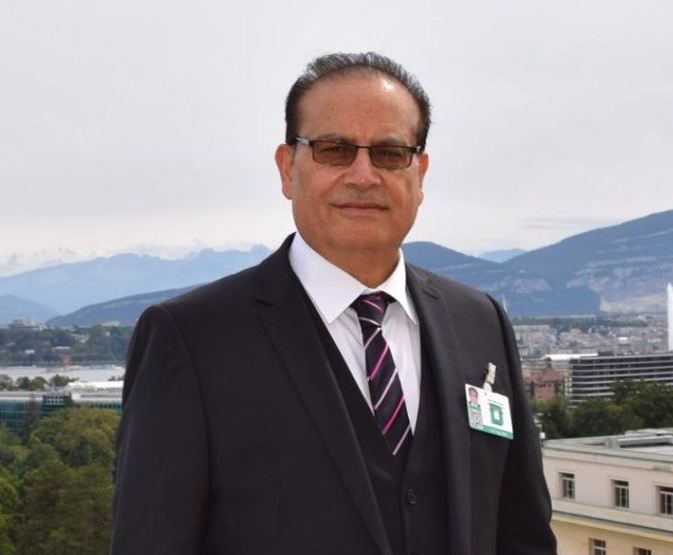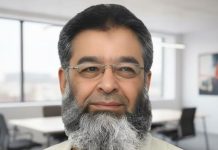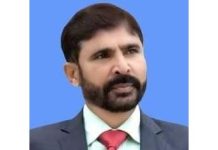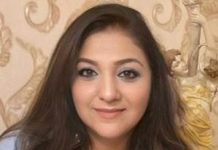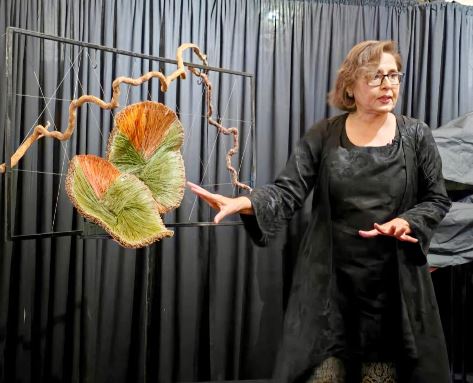Qamar Bashir
To truly understand a society, community, county, or country, the best approach is to engage directly with the people on the ground. Sitting comfortably in rooms or making high-level analyses from afar may be intellectually easy, but such approaches often lack genuine insight and fail to capture the true spirit, aspirations, fears, and realities of the community members. I had the unique opportunity to be part of Working America, an affiliate of the American Federation of Labor and Congress of Industrial Organizations (AFL-CIO), hired by the Democrats to conduct a house-to-house survey across Michigan. This grassroots initiative aimed to explore the preferences of local communities regarding Michigan’s future, identify the biggest issues they face, and gauge their thoughts on the presidential candidates best equipped to address those challenges. This experience provided invaluable insight into the real concerns of everyday people, bridging the gap between policy discussions and the lived experiences of the population.
Being part of the team conducting surveys across various localities in Michigan provided me with a profound understanding of the communities and the extent of freedom of expression and speech they experienced. A stark and startling realization emerged from these surveys: while the White population generally enjoyed full freedom of speech, many other communities, particularly immigrant groups, lived without such rights.
For example, when we surveyed the Detroit and Dearborn areas, home to predominantly Arab communities, including Lebanese, Yemeni, and Iraqi families. When asked about the most pressing issues affecting them—whether related to the economy, jobs, education, safety, or health—almost all respondents appeared skeptical, visibly fearful, and evasive. Instead of answering, many were more concerned about how we knew their names and became highly protective. Some families even grew hysterical, losing their composure out of fear. Despite the evident poverty, broken roads, litter, and lack of civic amenities in their neighborhoods, few were willing to identify specific concerns, fearing potential repercussions such as immigration-related consequences of being placed on some form of government watchlist. The sense of intimidation and absence of freedom of expression was palpable in these communities, highlighting the deep divide in how different populations experience their rights.
When we canvassed neighborhoods predominantly inhabited by Indian, Pakistani, and Bangladeshi communities, who are mainly concentrated in the Metro Detroit suburbs like Troy, Farmington Hills, Novi, Canton, and Rochester Hills. These areas are home to many professionals in IT, healthcare, and engineering. Pakistanis are well-represented in Troy, Canton, and Sterling Heights, with growing numbers in Warren and Dearborn. The Bangladeshi community is largely concentrated in Hamtramck and Detroit’s east side.
Much like the Arab communities we previously surveyed, these South Asian groups, despite many being American citizens, exhibited a similar reluctance to express their political views. Perhaps out of fear of victimization—whether through the withdrawal of state assistance, harassment by the White majority, or denial of job opportunities—they often hesitated to discuss political matters. Some even feared being falsely implicated in minor legal issues, which could severely damage their careers. When asked whom they would vote for in the upcoming elections, the common response was to avoid the topic, with many stating they do not engage in politics. Their fear of repercussions appeared to suppress their willingness to express opinions, even on broader issues that weren’t specific to their communities.
We also surveyed areas predominantly inhabited by Black communities, we could also sense the fear factor in black but to a much lesser degree compared to the immigrants but much less freedom of expression and opinion compared to the white. This survey prompted me to dive deep into the reasons and factors which prevent the blacks from expressing their opinion and exercising their right of expression. The disparity in freedom of expression between Black and White populations in the U.S. stems from historical, systemic, and institutional factors. The legacy of slavery, segregation, and systemic racism continues to marginalize Black voices, while institutional biases in law enforcement, media, and the criminal justice system often lead to harsher scrutiny and suppression of Black dissent. Economic and social inequities limit access to platforms for free expression, while media misrepresentation and surveillance of Black activism create further barriers. These factors, combined with cultural pressures to self-censor, result in Black Americans often facing more limitations on their freedom of speech compared to their White counterparts.The black though were less fearful compared to immigrants but as the same time they have their fears.
We also get the opportunity to survey the white dominant areas which mainly consist of western Michigan cities like Grand Rapids, Holland, and Muskegon. Northern Michigan, including Traverse City, Petoskey, and the Upper Peninsula cities like Marquette, is overwhelmingly White. Central Michigan cities such as Midland and Mount Pleasant, as well as Detroit’s western suburbs like Livonia and Novi, are also predominantly White. The first thing which could not escape our notice was the White-dominated areas typically benefit from better landscapes, beautification efforts, and civic amenities.
When we asked the same questions to White populations, instead of reacting with fear or hesitation, they readily stepped out of their doors, listened attentively, and answered each question with ease. They expressed their opinions with a broad smile, freely criticizing either Trump or Harris, Democrats or Republicans, without reservation. They discussed any issue under the sun without any fear of intimidation or reprisal. This stark contrast prompted me to seek a historical context for why White Americans enjoy greater freedom of expression in the U.S.
The reason, as I discerned, lies in their historical dominance, institutional power, cultural acceptance, and less scrutiny. Since the country’s founding, White populations have held social, economic, and political power, which allowed them to shape laws and institutions that protect their voices. Their perspectives have often been regarded as the societal norm, granting them broader acceptance and significantly less pushback compared to minority groups. Additionally, White Americans face less scrutiny and fewer legal consequences when expressing controversial views, and their economic advantages provide them greater access to platforms for free speech, reinforcing their privileged position in public discourse.
Although the First Amendment of the U.S. Constitution prohibits laws that curb freedom of speech, expression, or opinion, this protection seems to disproportionately favor White Americans, as other communities often do not experience the same freedoms in practice.
